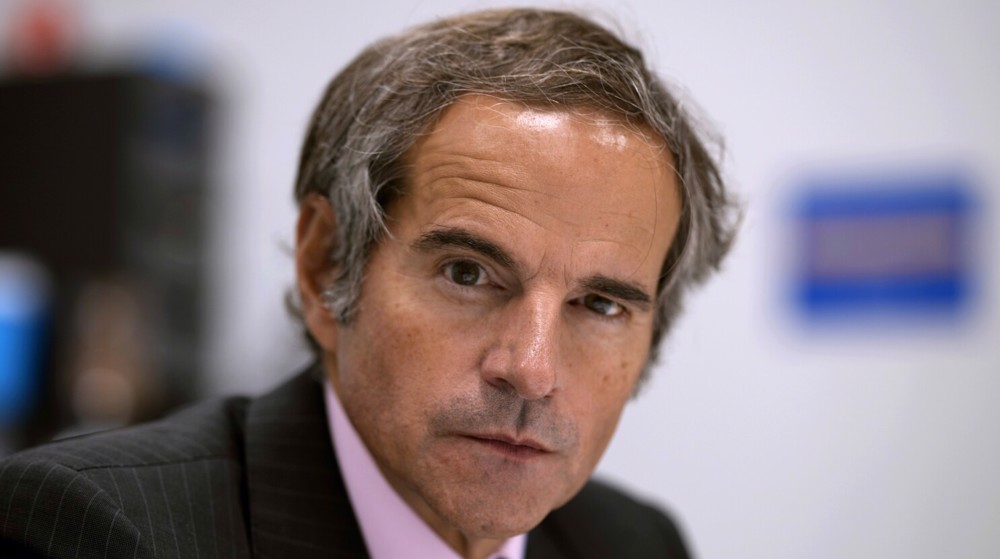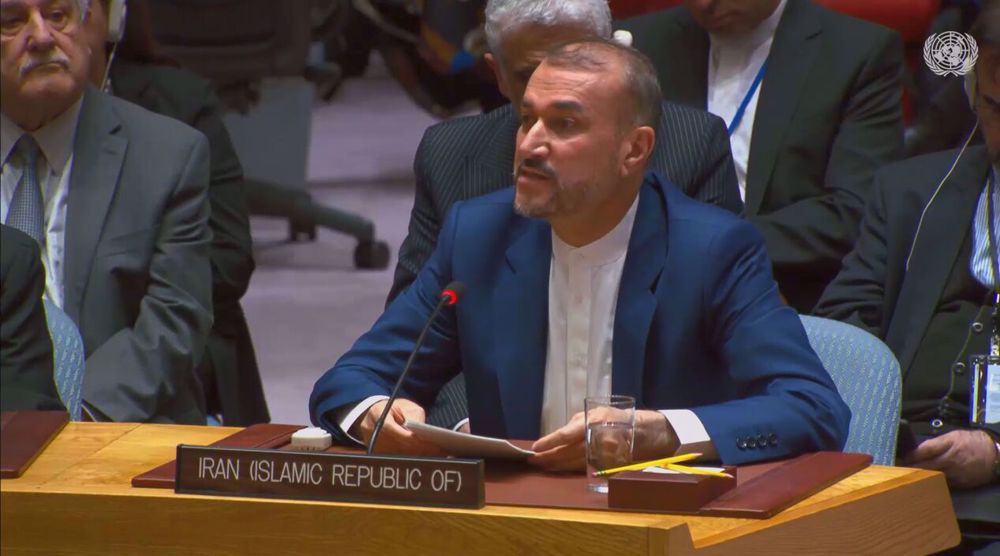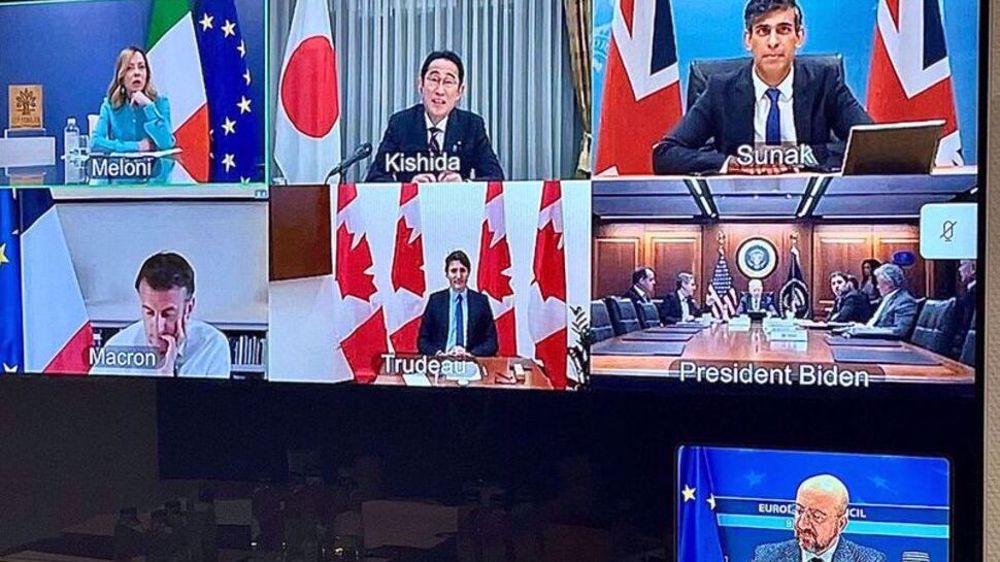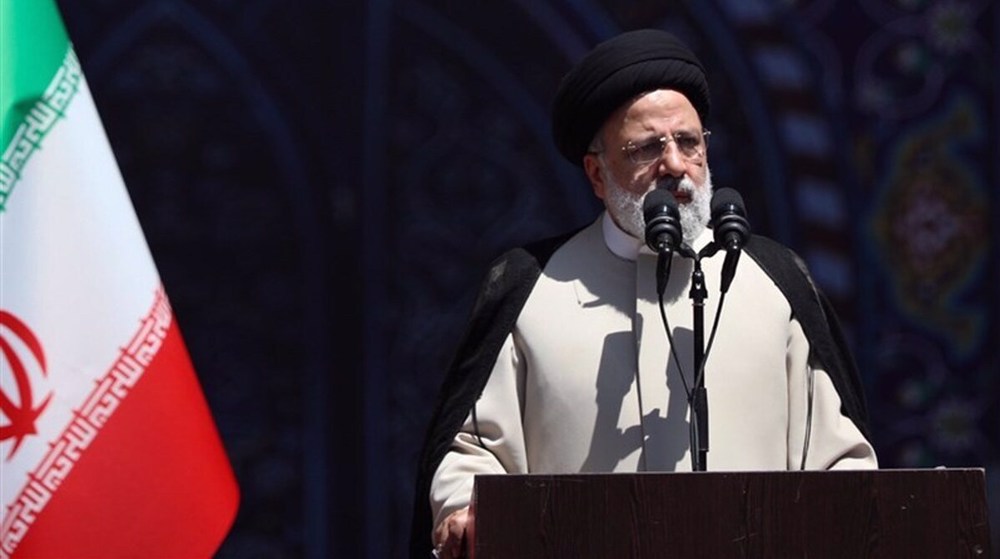Vienna talks: Top Iranian negotiator discusses sticking points with EU's Mora, Russian envoy
The top Iranian negotiator to the Vienna talks has met and conferred with European Union's deputy foreign policy chief in the Austrian capital as part of the eighth round of negotiations on the removal of anti-Tehran sanctions and revival of the 2015 Iran deal, officially known as the Joint Comprehensive Plan of Action (JCPOA).
Ali Bagheri Kani met with Enrique Mora at the Coburg Palais in Vienna on Thursday afternoon in line with intensive negotiations between Iran and the P4+1 group of countries, on the fourth day of the eighth round of the JCPOA talks.
The main thorny issues discussed during the bilateral meeting were reportedly the scope of sanctions and the removal of the entire bans imposed against Iran as part of the so-called maximum pressure campaign by the United States. Among other issues discussed were the guarantees demanded by the Islamic Republic so that it can verify the removal of sanctions, and also outstanding safeguard issues between Iran and the International Atomic Energy Agency (IAEA).
Mora, who also acts as the coordinator of the Joint Commission of the 2015 Iran agreement, was also reported to have held talks with the representatives of the European signatories to the JCPOA, as well as that of the US and the head of the Russian negotiating team, Mikhail Ulyanov.
In a tweet after the end of his talks with Iran's negotiator, Mora said, "We are at the final stages of the #ViennaTalks on #JCPOA."
However, he added that the talks have not reached their conclusion yet as "some relevant issues are still open and success is never guaranteed in such a complex negotiation."
Mora emphasized that all the negotiating parties are doing their best, but they were still distant from a final agreement.
We are at the final stages of the #ViennaTalks on #JCPOA. Some relevant issues are still open and success is never guaranteed in such a complex negotiation. Doing our best in the coordinator's team. But we are definitely not there yet.
— Enrique Mora (@enriquemora_) March 3, 2022
UK's negotiator in the Vienna talks also took to her Twitter account with a Persian tweet, saying, "We are very close to an agreement."
Stephanie Al-Qaq added that only a few final steps were remained to be taken before an agreement is reached.
ما خیلی نزدیک به یک توافق هستیم. همه طرف ها به طور سازنده تحت رهبری هماهنگ کننده اتحادیه اروپا مذاکره کرده اند _Enriquemora@ . اکنون باید چند قدم نهایی را برداریم.#ViennaTalks
— Stephanie Al-Qaq (@salqaq) March 3, 2022
The United States unilaterally left the historic deal in 2018 and returned the sanctions that had been lifted under the accord. Washington’s European allies in the deal have been toeing the sanctions line closely by ending their trade activities with Iran.
The Vienna talks began last April between Iran and the five remaining parties to the JCPOA — Britain, France, Germany, Russia and China — on the assumption that the US, under the Joe Biden administration, is willing to repeal the so-called maximum pressure policy pursued by former president, Donald Trump.
Tehran says it won’t settle for anything less than the removal of all US sanctions in a verifiable manner. It also wants guarantees that Washington would not abandon the agreement again.
Iran spokesman: Deal not done until all outstanding issues resolved
Later on Thursday, the spokesman for Iran's Foreign Ministry Saeed Khatibzadeh cautioned about any premature judgment on a deal in the Vienna talks, saying, "Premature good news does not substitute good agreement."
"Nobody can say the deal is done, until all the outstanding remaining issues are resolved. Extra efforts needed," he said, adding that all parties in the Vienna talks are "now focused on the final critical steps."
#ViennaTalks still continue.
— Saeed Khatibzadeh | سعید خطیبزاده (@SKhatibzadeh) March 3, 2022
Premature good news does not substitute good agreement.
Nobody can say the deal is done, until all the outstanding remaining issues are resolved. Extra efforts needed.
Everybody is now focused on the final critical steps.
Russian envoy: Vienna talks ‘almost over’
Iran's top negotiator also had a separate meeting with the Russian delegation in the Vienna talks, which is headed by the country's ambassador to international organizations in the Austrian capital, Mikhail Ulyanov. During the bilateral meeting, the two sides discussed the latest developments in the negotiations.
Following the meeting, Ulyanov took to his Twitter account, describing the past 11 months of JCPOA-related negotiations as a “long and grueling marathon,” and saying that the talks were “almost over.”
“Yesterday marked 11 months since the #ViennaTalks started. A long and grueling marathon. Now it is almost over,” Ulyanov said in a tweet.
Yesterday marked 11 months since the #ViennaTalks started. A long and gruelling marathon. Now it is almost over.
— Mikhail Ulyanov (@Amb_Ulyanov) March 3, 2022
In another tweet also on Thursday, he hailed the “very useful meeting” with the top Iranian negotiator and said they “discussed what else needs to be done to finalize the Vienna talks.”
“A very useful meeting this evening with the chief Iranian negotiator Dr. Ali Bagheri Kani. We discussed what else needs to be done to finalize the #ViennaTalks on #JCPOA,” Ulyanov wrote.
A very useful meeting this evening with the chief Iranian negotiator Dr. Ali Bagheri Kani. We discussed what else needs to be done to finalise the #ViennaTalks on #JCPOA. pic.twitter.com/walUU3qDtu
— Mikhail Ulyanov (@Amb_Ulyanov) March 3, 2022
IAEA: Iran's stock of uranium doubles to 33 kg
In a relevant development on Thursday, the UN nuclear watchdog issued a report on Iran's latest nuclear activities, saying that the country's stock of enriched uranium has swollen in the past quarter and the amount close to “weapons-grade” has almost doubled.
The report by the UN nuclear watchdog said Iran's stock of uranium hexafluoride, the feedstock for centrifuges, includes 33.2 kg of uranium enriched to up to 60% purity, an increase of 15.5 kg.
That total stock of enriched uranium now stands at 3.2 tonnes, an increase of 707.4 kg on the quarter, the report said.
Iran reacts to IAEA report: No data given to agency until JCPOA revived
Iran reacted to the IAEA's latest report by saying that no data on the country's nuclear activities will be given to the agency until the ongoing negotiations in the Austrian capital on the revival of the landmark 2015 deal reach a conclusive result and the deal is restored.
Iran’s acting ambassador to the IAEA, Mohammad Reza Ghaebi, said the report was just a routine update on the latest developments as well as new technical information with respect to Iran’s nuclear activities.
According to Ghaebi, the report has noted that following constructive consultations with the head of the Atomic Energy Organization of Iran (AEOI) Mohammad Eslami, the two sides reached an agreement on reinstalling the IAEA’s camera’s at Iran’s TESA nuclear facility in the city of Karaj.
Following that, the Iranian ambassador said, Tehran informed the IAEA that instead of the Karaj facility, it will continue producing centrifuge parts at a new facility near the central city of Isfahan and the IAEA installed its cameras in the new facility as well.
“Of course, as long as Iran has not returned to the full compliance with the Joint Comprehensive Plan of Action (JCPOA), relevant information [collected by the IAEA’s cameras] will not be made available to the agency and will be stored in Iran,” the senior diplomat said.
He added that restrictions to the IAEA’s access to Iran’s nuclear facilities, which have been mentioned in the new report, are the result of the implementation of the law approved by the Iranian parliament in December 2020, which tasked the Iranian administration with suspending more commitments under the nuclear deal.
The law, which is officially known as the Strategic Action Plan to Counter Sanctions, was adopted in order to further Iran’s counter-steps in the face of the non-commitment of the United States and its European allies -- the UK, France, and Germany’s -- to the nuclear deal.
Among other things, the law obliged the Iranian administration to stop allowing inspections beyond the Safeguards Agreement, including the voluntary implementation of the Additional Protocol, if the other parties to the JCPOA failed to deliver on their commitments.
Over 14,000 kids killed in Israel’s war on Gaza: UNICEF
VIDEO | Iran’s National Army Day marked at the Iranian embassy in Moscow
VIDEO | Iranian culture fosters further development, understanding in SA
VIDEO | People in Amman hold protest in support of Palestinians
French police arrest man after threatening to detonate himself at Iran consulate
Yemenis, Jordanians reiterate support for Palestinians in Gaza
Iranians rally nationwide in support of Operation True Promise
Raeisi: Operation True Promise ‘a necessary response’ to Israel










 This makes it easy to access the Press TV website
This makes it easy to access the Press TV website